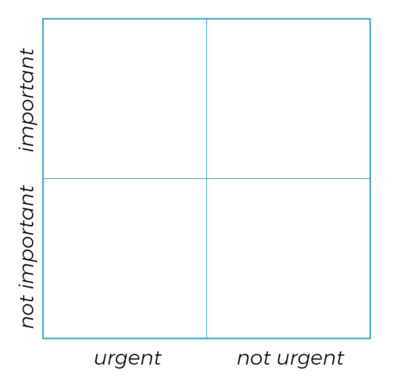Arts and Culture
Business Strategy
Article
Insights & Innovation
6d156e4b-2563-454c-9107-c19cd6b647f2
3 min
https://edge.sitecorecloud.io/tessituraneab9a-tessiturane5642-staging-5396/media/Images/Stock-Photography/notepad-pen-desk-768x465.jpg?h=465&iar=0&w=768
To look at the value of everything, we need to take inventory of what's happening.
The Value of Everything, Part 3

Chief Strategy Officer, Tessitura Network
The Value of Everything, Part 3
2/11/2019
3 min
In the first two parts of our series, we talked about the three components of the value of everything.
There’s information, inventory, and intention. We did our first self-assessment, taking stock of information. Now it’s time for the second component: inventory.
Inventory
We can’t look at the value of everything without a realistic look at what is happening. So here’s where I ask you: what are you doing?
Take out a piece of paper, or create a new document. Then list ten tasks you did last week — not busy work, but tasks that required your attention and input in order to be successful. And not crisis management, but work that you expected to be doing.
Now we’ll take inventory of those tasks. We’re going to rate things again.
Take the second Self-Assessment >

.
.
.
.
Done? Ready to see where you are?
Let’s look at the labels for these results.

Are you adrift? Or are you accomplishing what you need to?
If you fall on the “adrift” side of the spectrum, I'm going to offer you a tool to help guide your priorities. Pull out your list of ten tasks. Next, download this Eisenhower Matrix and print yourself a copy. It should look like this:

Now take your list of ten tasks, and place each item into the quadrant that most accurately describes where it belongs.
.
.
.
.
Does anything stand out to you? Are you staying focused on your most important work? Are you getting drawn into urgent tasks that aren’t particularly important? Are you neglecting to make time for the important things that are less urgent, just because they’re not breathing down your neck?
Here’s a guide that may be helpful in setting your priorities.
|
Important/Urgent
Do it yourself, and get it done immediately. |
Important/Not Urgent
Set an end date for yourself, and do these personally. |
|
Unimportant/Urgent
Delegate if possible. |
Unimportant/Not Urgent
Drop if out of time. |
For the Value of Everything, defining everything means that you need to be realistic about your ability with information. You also need to maintain acute awareness of your inventory to ensure what you are doing makes sense.
What lies between your ability with information and getting it done on your inventory?
Intention.
And that will be the focus of the final part of this series. Come back next week for Part Four to see the most important piece of the puzzle.
Ready for Part 4?
Are you just joining our series?
Topics
Arts & Culture
/Business Strategy

Planning for High-Volume On-Sales (The Donut Problem)
Arts & Culture / Business Strategy / Customer Service / Digital / IT & Systems / Technology / Ticketing & Admissions
Kristin Darrow offers her advice for managing a large ticket on-sale where demand outstrips supply, while maintaining a good customer experience throughout

Des Moines Performing Arts | Success Story
Digital / Business Strategy / IT & Systems / Presenting & Performance / Theatre / Ticketing & Admissions
Denise Smithson Green describes how Des Moines Performing Arts achieved a record on-sale for Hamilton